4. To our guess that heliacal Alcyone was at the
beginning of side a of the Keiti tablet we can now add the
corresponding dates in Roman times, those according to the era (epoch) of
Bharani, and those according to the era of the Golden Bull:
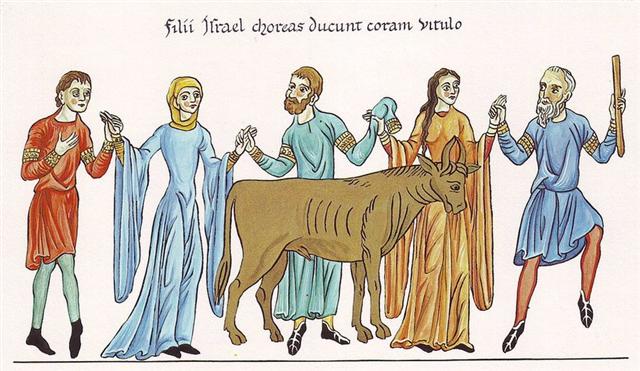
|
May 16
(501) |
17 |
18 (74 + 64) |
19 (139) |
20 (20
weeks) |
|
'April 19
(474) |
20 |
21 (111) |
22 (139 -
27) |
23 |
|
"April 5 |
6 |
7 (88 = 74
+ 14) |
8 |
9 (99 =
140 - 41) |
|
MARCH 13 |
14 → 3-14 |
15 (74) |
16 |
17 |
 |
 |
 |
 |
 |
|
Ea1-1 |
Ea1-2 |
Ea1-3 |
Ea1-4 |
Ea1-5 |
|
E
hakamata hia tu mai tae vahu ku huku
hia te vaha
ko te tagata - kua mau ki te
hukiga |
|
Va.
1. Hakava, judge, judgement. T Mgv.: akava, to
judge, to pass sentence. Pau.: haava, to judge, to
conjecture. Ma.: whakawa, to charge with crime, to
condemn. Ta.: haava, to judge. 2. Hakava, to
speak. P Mgv.: va, to speak. Mq.: vaa, to chatter
like a magpie. The Marquesan retains more of the primal sense
although the simile is an alien importation. In Samoa va
means a noise, in Tonga va is a laughing noise, in Futuna
va is the disorderly cry of tumult, and probably it is
the initial element of Viti wa-borabora to speak quickly
and confusedly as when scolding. Its only identification in
Tongafiti territory is Hawaii wawa the confused noise of
a tumult ... Churchill. Ta.: va, space between the leaves
in a roof. Sa.: va, space between. Ma.: wa,
interval. Churchill.
Hu. 1. Breaking of wind. T Mgv., uu,
to break wind. Mq., Ta.: hu, id. 2. Whistling of the
wind, to blow, tempest, high wind. P Pau.: huga, a
hurricane. Churchill. Mgv.: hu, to burst, to crackle, to
snap. Ha.: hu, a noise. Churchill.
Ha. 1. Four. 2. To breathe. Hakaha'a,
to flay, to skin. Vanaga. 1. Four. P Mgv., Mq.,
Ta.: ha, id. 2. To yawn, to gape. 3. To heat. 4.
Hakaha, to skin, to flay; unahi hakaha, to scale
fish. Mgv.: akaha, to take to pieces, to take off the
bark or skin, to strip the leaves off sugarcane. 5. Mgv: ha,
sacred, prohibited. Mq.: a, a sacred spot. Sa.: sa,
id. Churchill.
Vaha.
Hollow; opening; space between the fingers (vaha rima);
door cracks (vaha papare). Vahavaha, to fight, to
wrangle, to argue with abusive words. Vanaga. 1. Space, before
T; vaha takitua, perineum. PS Mgv.: vaha, a space,
an open place. Mq.: vaha, separated, not joined. Ta.:
vaha, an opening. Sa.: vasa, space, interval. To.:
vaha, vahaa, id. Fu.: vasa, vāsaà,
id. Niuē: vahā. 2.
Muscle, tendon; vahavaha,
id. Vahahora (vaha
1 - hora 2), spring.
Vahatoga (vaha
1 - toga 1), autumn.
3. Ta.: vahavaha, to
disdain, to dislike. Ha.: wahawaha,
to hate, to dislike. Churchill.Vaha.
Hollow; opening; space between the fingers (vaha
rima); door cracks (vaha papare). Vahavaha, to
fight, to wrangle, to argue with abusive words. Vanaga. 1.
Space, before T; vaha takitua, perineum. PS Mgv.: vaha,
a space, an open place. Mq.: vaha, separated, not joined.
Ta.: vaha, an opening. Sa.: vasa, space, interval.
To.: vaha, vahaa, id. Fu.: vasa, vāsaà,
id. Niuē: vahā. 2.
Muscle, tendon; vahavaha,
id. Vahahora (vaha
1 - hora 2), spring.
Vahatoga (vaha
1 - toga 1), autumn.
3. Ta.: vahavaha, to
disdain, to dislike. Ha.: wahawaha,
to hate, to dislike. Churchill. |
|
May 21 (365 + 141 = 506) |
22 (*62) |
|
'April 24 (506 - 27 =
479) |
25 (*35
= 115 - 80) |
|
"April 10 (100 →
61 + 39) |
11
(*21) |
|
MARCH 18 (442) |
19 (78 → 62 + 16) |
 |
 |
|
Ea1-6 |
Ea1-7 |
| rere
te toki rere ki uta |
rere
ki te vao |
|
Uta.
Higher up (from the coast, or from another place); i
uta era, further up, up there; ki î te îka i uta,
as there are lots of fish on the beach. Vanaga. 1. Inland,
landward; paepae ki uta, to strand, to run aground;
mouku uta, herbage. 2. To carry; uta mai, to
import; hakauta, to give passage. Campbell.
Vao.
Mgv.: vao, uninhabited land. Ta.: ? [obliterated
text] ... of the valleys. Mq.: vao, bottom of a
valley. Sa.: vao, the bush. Ma.: wao, the
forest. Churchill.
Toki.
Small basalt axe. Vanaga. Stone adze. Van Tilburg.
Ha'amoe ra'a toki = 'Put the adze to sleep' (i.e. hide
it in the temple during the night). Barthel. Month of the
ancient Rapanui calendar. Fedorova according to
Fischer. To'i. T. Stone adze (e to'i purepure
= with the wounderful adze). Henry. The Araukan Indians in
the coastal area of northern Chile, have customs similar to
those on the Marquesas and in both areas toki means
adze according to José Imbelloni. The Araukans also called
their chief of war toki and the ceremonial adze
symbolized his function and was exhibited at the outbreak of
war. In Polynesia Toki was the name of a chief
elevated by the Gods and his sign was the blade of a toki.
Fraser. Axe, stone hatchet, stone tool ...; maea toki,
hard slates, black, red, and gray, used for axes T. P Pau.:
toki, to strike, the edge of tools, an iron hatchet.
Mgv.: toki, an adze. Mq.: toki, axe, hatchet.
Ta.: toi, axe. Churchill. A Maori saying: he iti
toki, e rite ana ki te tangata = though the adze be
small, yet does it equal a man. (Starzecka)
Honui. 1. Person worthy of respect, person of
authority. 2. Livelihood, heirloom, capital;
ka moe koe ki toou hônui, you must marry to ensure
your livelihood (said to a little girl); he hônui mo
taaku poki, this is the heirloom for my son. Vanaga.
Great (hoonui); honui, chief T.; tagata
hoonui, personage; hakahonui, to praise, to
commend. Churchill.
|
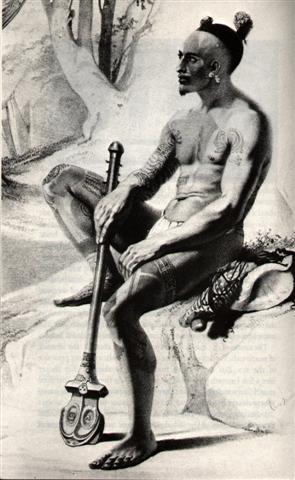
Presumably the number of glyphs on side b on the B tablet (506)
was intended to point at May 21 (365 + 141 = 506), 20 days after
Beltaine (May 1,
121). Could this be where the Easter Island month named Toki
was due to begin?

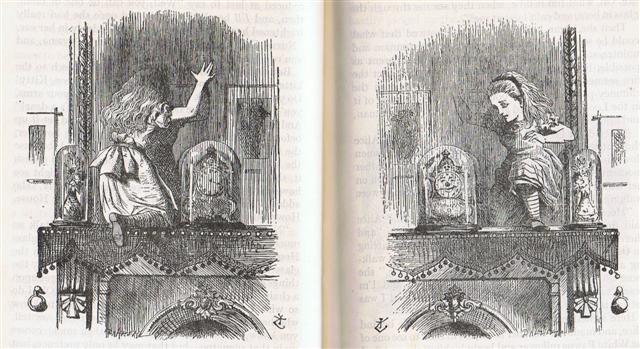
Or should we not rather guess the day for the beginning of the month
of Toki was the proper equinox date in time-space, viz
MARCH 20 (79)? Counting the eggs of birds (high up above the
road of the Spider) and
the eggs of fishes (far down below the way to the Sky-Father) the
proper measure surely ought to be 20 (the score for counting
something round).
... Now birds and fishes are born under the sign
of the Yin, but they belong to the Yang. This is why
birds and fishes both lay eggs. Fishes swim in the waters, birds fly
among the clouds. But in winter, the swallows and starlings go down
into the sea and change into mussels ...
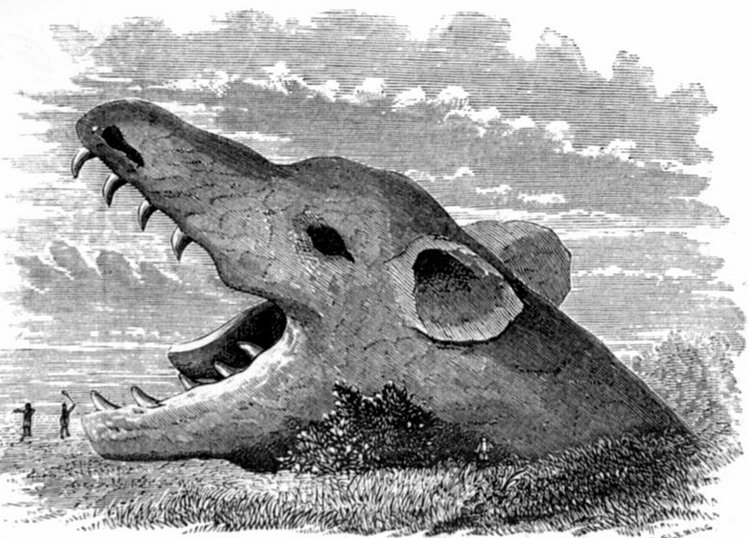
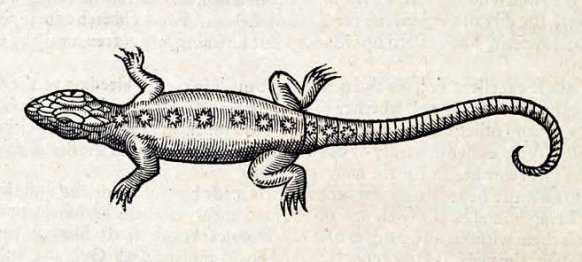
... These 20 days reminded me of
20-dag Knut which in
Sweden comes 20 days after Christmas Eve, because the male name
Knut means Knot, which is to tie (humu). Here the
Christmas Tree should be 'danced out' ...

Dancing around a vertical tree occurs both at midsummer and at
midwinter.
|
May 23 (508 = 444 + 64 =
*63) |
24 (*64 = 144 - 80) |
|
'April 26 (481 = 508 -
27) |
27 (*37 = *64 - *27) |
|
"April 12 (*22) |
13 (144 - 41 = 103) |
|
MARCH 20 (*364 = 444 -
80) |
21 (80 = 144 - 64) |
|
Al Dabarān-2 (The
Follower)
HYADUM I =
γ
Tauri (63.4)
*22.0 = *63.4 - *41.4 |
HYADUM II = δ¹ Tauri
(64.2) |
 |
 |
|
Ea1-8 |
Ea1-9 |
|
rere te toki |
rere ki hau tea - eko te toki |
|
Atea. The name of the district or
section of country over which Olopana is to have
ruled in Kahiki was in Hawaiian
Moa-ula-nui-akea. Analyzing this word, it consists
of one appellative, Moa, and three adjectives or
epithets, ula, nui, akea, 'red,
great, open, or wide-spreading' ... (Fornander) Pau.:
fakaatea, to remove, to put away. Ta.: atea,
clear. Mq.: atea, id. Sa.: ateatea, wide,
spacious. Ma.: atea, clear. Churchill.
Tea.
1. Light, fair, whitish. 2. To rise (of
the moon, the stars); ku-tea-á te hetu'u ahiahi,
the evening star has risen. Vanaga. 1. To shine,
be bright, brilliant, white; tea niho, enamel
of the teeth; ata tea, dawn; teatea,
white, blond, pale, colorless, invalid; rauoho
teatea, red hair; hakateatea, to blanch,
to bleach. P Pau.: faatea, to clear, to
brighten. Mgv.: tea, white, blanched, pale.
Mq.: tea, white, clear, pure, limpid. Ta.:
tea, white, brilliant. 2. Proud, vain, haughty,
arrogance, to boast; tae tea, humble;
teatea, arrogant, bragging, pompous,
ostentatious, to boast, to show off, haughty;
hakateatea, to show off. Mgv.: akateatea,
pride, vanity, ostentatious, to be puffed up. Ta.:
teoteo, boastful, proud, haughty. 3. Mgv.:
teatea, heavy rain. Ha.: kea, the rain at
Hana and Koolau. Churchill. 1. White,
clear; fair-complexioned person, often favorites at
court; shiny, white mother-of-pearl shell, cfr.
keakea, kekea, Mauna Kea. Po'o
kea, towhead, gray-haired person. One kea,
white sand (this is shortened to ōkea or
kea, as in the expression kea pili mai,
drift gravel - vagabond). (PPN tea). 2.
Breast milk. See Nu'a-kea. 3. A variety of
sugar cane, among Hawaiians one of the best-known
and most-used canes, especially in medicine: clumps
erect, dense, of medium height; pith white. Ua
ola ā 'ō kō kea, living until kea cane
tassels (until the hair turns gray). 4. Name listed
by Hillebrand for kolomona (Mezoneuron
kavaiense); see uhiuhi. Wehewehe.
|
.jpg)
|














.jpg)